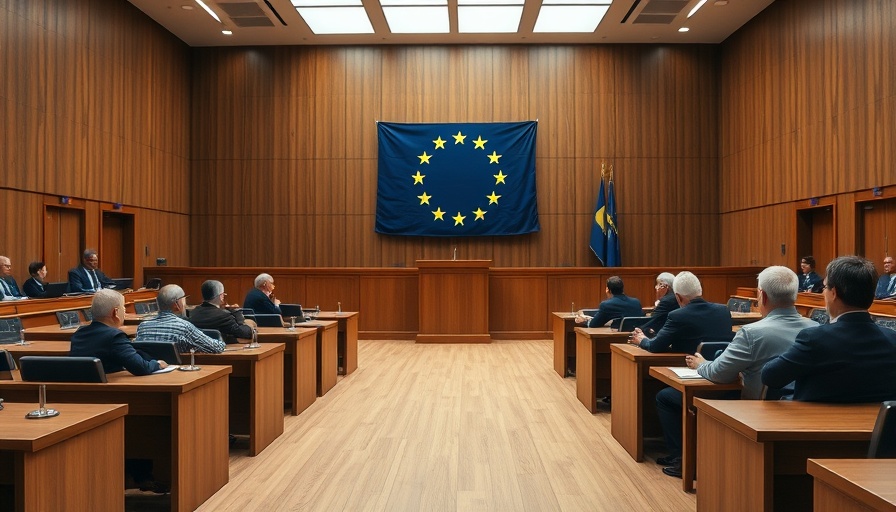
EU Takes Firm Action Against Automaker Cartels
The European Commission has delivered a substantial blow to automotive giants Volkswagen, Renault-Nissan, Stellantis, and 12 other manufacturers, imposing fines totaling over $495 million for their involvement in an extensive cartel designed to stifle competition in vehicle recycling. This unprecedented action highlights the EU's commitment to environmental integrity and consumer transparency.
What Led to the Fines?
After a detailed investigation, the Commission revealed that these manufacturers colluded over a span of 15 years to undermine recycling initiatives in the automotive sector. They allegedly agreed to refrain from promoting the recycled content of their vehicles or the recyclability of cars, effectively keeping consumers uninformed. Teresa Ribera, the Commission’s executive vice-president, emphasized that such collusion would not be tolerated as it suppresses customer awareness of eco-friendly practices.
The Cartel's Structure Explained
The cartel, orchestrated by the ACEA (European Automobile Manufacturers' Association), involved meetings where strategies were developed to limit competition. The car manufacturers not only shared sensitive information regarding agreements with car dismantlers but also pooled resources to avoid compensation for recycling practices. The ACEA itself faced a fine of €500,000 for its role in fostering this anti-competitive environment.
Consumer Impact and Future Ramifications
Consumers stand to gain from this decision as the ruling opens the door for them to seek damages if they were affected by the cartel's actions. With the accountability now placed on these automakers, a greater emphasis on recycling and sustainable practices could emerge, benefiting the environment and raising consumer awareness about the importance of vehicle recyclability.
Looking Ahead: The Future of Sustainable Auto Manufacturing
The fines imposed on these automotive powerhouses could signal a pivotal shift in industry standards towards more sustainable practices. As manufacturers face stricter regulations, the push for genuine innovation in how vehicles are produced, used, and disposed of is likely to accelerate. Future models may feature improved recycling capabilities, offering consumers more options that reflect their values regarding sustainability.
Expert Opinions on The Ruling
Experts applaud the EU's decisive action, viewing it as a necessary step to prevent similar misconduct in the future. By punishing bad behavior, the Commission may foster a more competitive marketplace where eco-friendly practices are not just encouraged but are integral to car manufacturing. This could lead to innovations that align better with consumer desires for more sustainable products.
These events serve as a stark reminder of the importance of ethical practices in business, especially in industries with significant environmental impacts. The repercussions of this ruling extend beyond fines; they push for an industry evolution that prioritizes the planet alongside profit.
 Add Row
Add Row  Add
Add 




 Add Row
Add Row  Add
Add 

Write A Comment